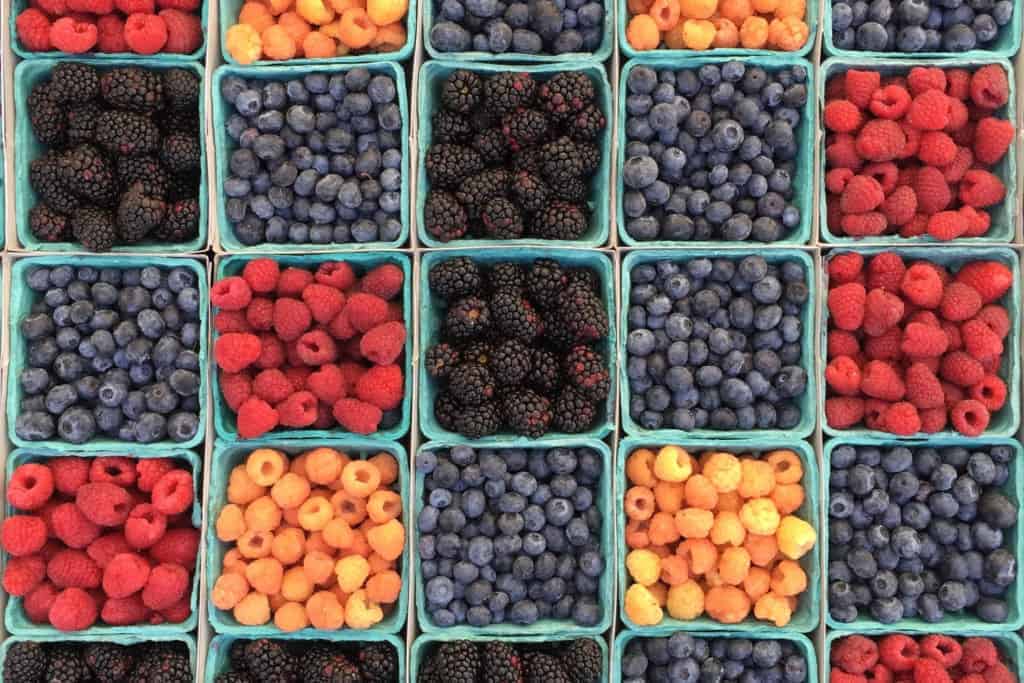Food of the Month – Berries

Click here for a foolproof smoothie formula.
Many of our beloved berries are not actually berries at all. Botanically, berries are fruits which derive from a single flower with a single ovary. True berries include: blueberries, grapes, currants, avocados, tomatoes, and bananas. Strawberries and raspberries are aggregate fruits.
Nutrition: Berries are a great source of fiber and vitamin C with 1 cup of blackberries providing 8 grams of fiber (about 25% daily recommendations) and 100% DRI for vitamin C.
Berries are sources of phytochemicals such as anthocyanin which is responsible for the blue/purple color in produce. This compound and other pigments are excellent antioxidants.
Fun Facts: Tayberries are a cross between blackberries and raspberries. Strawberries are part of the rose family.
Storage Tips: Berries quickly decompose when exposed to water, so wait to wash them until right before eating. Handle carefully to avoid bruising, and store in a shallow container to reduce stacked berries getting crushed.
Berry jams are popular foods that often contain excessive amounts of added sugar. Look for low-sugar or 100% fruit spreads.
Fun Facts: The Skagit Valley is our state’s leading strawberry producer. Skagit County grows four million pounds of raspberries annually with the majority entering the frozen berry market.
Only three fruits are native to North America: cranberries, concord grapes, and blueberries.
Strawberry Shortcake was inspired by a Native American bread made of cornmeal baked with strawberries.
FYI: Poisonous berries include holly, mistletoe, and nightshade.
Himalayan blackberries are an invasive species in Washington State and were introduced in the late 1800’s by Luther Burbank in an attempt to encourage backyard food production. Despite their invasive designation, they are delicious and have the same health benefits as cultivated varieties.
 Amber Phillips, MS, RD is a registered dietitian at Island Hospital. She has a Master’s degree in nutrition from Bastyr University in Kenmore, WA and a Bachelor’s degree in biology from Metropolitan State University, St. Paul, MN. Phillips has a keen interest in community education. “Nutrition advice can be confusing and sometimes conflicting,” says Phillips. “My role as a dietitian is to follow the latest research and make it easy to understand for my patients and the public.” To schedule an appointment with Phillips, call (360) 299-1300 x2567.
Amber Phillips, MS, RD is a registered dietitian at Island Hospital. She has a Master’s degree in nutrition from Bastyr University in Kenmore, WA and a Bachelor’s degree in biology from Metropolitan State University, St. Paul, MN. Phillips has a keen interest in community education. “Nutrition advice can be confusing and sometimes conflicting,” says Phillips. “My role as a dietitian is to follow the latest research and make it easy to understand for my patients and the public.” To schedule an appointment with Phillips, call (360) 299-1300 x2567.
Published on July 2, 2020
